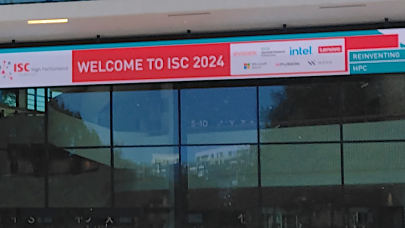April 30, 2021 — PRACE (Partnership for Advanced Computing in Europe), the European research infrastructure on High Performance Computing (HPC), makes it possible for researchers from public and private institutions from across Europe and the world to apply for resources on high-end Tier-0 HPC systems via a centralized peer review process. Read below for proposal due dates.
 The objective of PRACE Preparatory Access is to allow PRACE users to optimize, scale and test codes on PRACE Tier-0 systems before applying to PRACE calls for Project Access. The next PRACE call for proposals for Project Access will most likely open in Autumn 2021. Production runs are not allowed as part of PRACE Preparatory Access.
The objective of PRACE Preparatory Access is to allow PRACE users to optimize, scale and test codes on PRACE Tier-0 systems before applying to PRACE calls for Project Access. The next PRACE call for proposals for Project Access will most likely open in Autumn 2021. Production runs are not allowed as part of PRACE Preparatory Access.
Currently, PRACE offers the following schemes for Preparatory Access:
Type A: this scheme is intended to produce scalability plots of the performance of the codes on PRACE HPC systems, as well as other parameters that may be relevant to apply for PRACE calls for Project Access. The maximum duration of Type A projects is 2 months.
Type B: the objective of this scheme is to undertake code development and optimization. Applicants will need to describe the proposed work plan in detail, including the human resources and expertise available to implement the project. The maximum duration of Type B projects is 6 months. Please note that applicants requesting computing time on Piz Daint, at ETH Zurich/CSCS, will be asked to provide additional information on development milestones.
Type C: in this scheme, PRACE experts are requested to provide the necessary support to undertake adaptations (development and optimization) to the codes of PRACE users. The maximum support that can be requested is the equivalent to 6 person-months of effort. The maximum duration of Type C projects is 6 months.
Type D: this scheme allows PRACE users to start a code adaption and optimization process on a PRACE Tier-1 system. PRACE experts help in the system selection process. In addition to Tier-1 computing time, the PRACE user will also receive Tier-0 computing time towards the end of the project (in the form of Type A scheme) to test the scalability improvements. The work is supported by PRACE experts. The maximum support that can be requested is the equivalent to 6 person-months of effort. The maximum duration of Type D projects is 12 months.
The Call for Proposals for PRACE Preparatory Access Type A and Type B schemes is a continuously open call, with a maximum time-to-resources-access (start-date) of two weeks after the date of submission.
Requests for Type C and D scheme are evaluated and granted on a quarterly schedule, with cut-offs for evaluations to be set at 11:00 AM CEST / CET of the first working day of March, June, September and December. Awarded proposals for Type C and D will have a maximum time-to-resources-access (start-date) of two months after the relevant cut-off date.
The upcoming cut-off dates for Preparatory Access Type C and D proposals are:
- 1 June 2021 – 11:00 AM CEST
- 1 September 2021 – 11:00 AM CEST
- 1 December 2021 – 11:00 AM CET
Before the end of Preparatory Access projects, users are requested to provide a final report of their project, using the corresponding PRACE template form available here.
CSC will be pleased to help you in preparing applications, especially regarding the technical questions. If you consider applying for the PRACE computing resources, you may contact CSC’s Development Manager Sebastian von Alfthan (sebastian.von.alfthan(a)csc.fi).
Source: CSC

























































